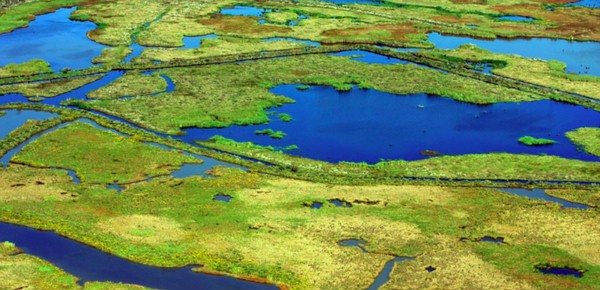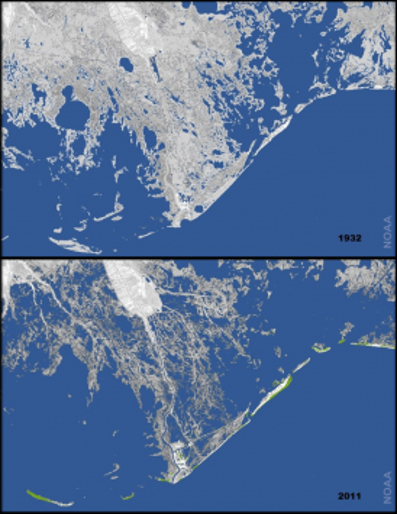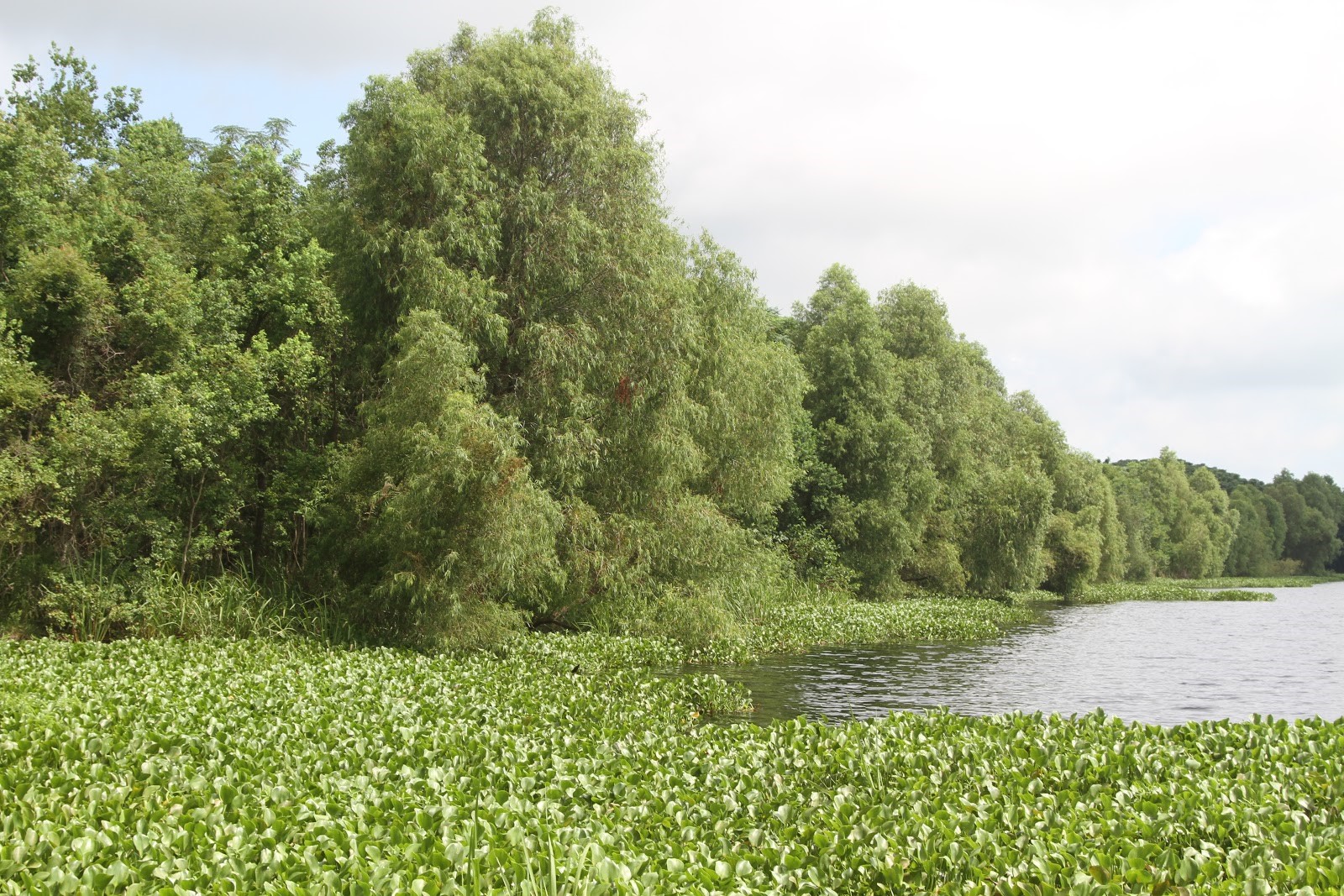Anyone, anywhere, at any time can turn their curiosity about nature into real-world impact by volunteering online with citizen science.
Caroline Nickerson, Miss Louisiana Earth, is hosting an online challenge with SciStarter, Cartoscope, Healthy Gulf and Northeastern University for the general public from August 1 – August 14 to volunteer online and map land loss.
In 2020, Caroline Nickerson was named Miss Louisiana Earth, and in January 2021, she was the grand prize scholarship winner at Miss Earth USA in recognition of her leadership and volunteer efforts. In the final month of her reign as Miss Louisiana Earth, she is using her platform, “Citizen Science Empowers Resiliency,” and the entirety of the scholarship she received at the pageant to partner with individuals, communities and groups to highlight educational and volunteer opportunities related to the environment in one final volunteer challenge.

Take Action
Wetlands matter. They’re Louisiana’s first line of defense against hurricanes, but they’re being lost at an alarming rate. Volunteers can help from anywhere in the world by participating in the online Land Loss Lookout project, developed by Cartoscope in partnership with Healthy Gulf and Northeastern University. Members of the public can identify types of wetland loss in the Gulf of Mexico and label where such loss is occurring by categorizing infrared aerial photographs.

Starting on August 1, volunteers can participate in Land Loss Lookout as part of Miss Louisiana Earth’s and SciStarter’s special challenge, with new data focused on climate impacts and wetlands.
To participate, volunteers should follow these instructions:
- Go to SciStarter.org/Louisiana and make a SciStarter account.
- Click on the Land Loss Lookout icon.
- Follow the instructions to begin participating in Land Loss Lookout.
- After you finish a session, the project will prompt you to fill out a brief survey, inform you about how many contributions you made and direct you to SciStarter to get credit for those contributions. The link to SciStarter will appear at the top of the Land Loss Lookout website after you finish the brief survey.

Whoever makes the most contributions during the two-week period will get a shoutout on the Miss Louisiana Earth and SciStarter social media accounts.

Land Loss
The Mississippi River Delta, located on Louisiana’s Gulf coast, is one of the most fertile landscapes in the world. The delta provides food and shelter for those who call it home, as well as hurricane and flood protection, a flyway for migratory birds, recreational benefits and more. Despite their economic and ecological value, Louisiana’s wetlands are being lost at an alarming rate. Over 400 square miles of marshland have been lost to oil and gas activity alone. Volunteer participation in the online Land Loss Lookout project helps researchers understand this problem.

More About the Miss Earth USA Organization, Beauties for a Cause, Caroline Nickerson and Citizen Science
In 2020, Caroline Nickerson was named Miss Louisiana Earth, and in January 2021, she was the grand prize scholarship winner at Miss Earth USA in recognition of her leadership and volunteer efforts. The mission of Miss Earth USA is to provide a platform for America’s women to be a voice for environmental responsibility, while featuring these beauties for a cause in fashion, media and leadership opportunities. Many Miss Earth USA titleholders, including Caroline, become ambassadors for and conduct community service with Beauties for a Cause, Inc., a 501(c)3 not for profit organization.
Follow Caroline’s Miss Louisiana Earth Journey on Facebook and Instagram. Applications are currently open for Miss Louisiana Earth 2021.

Caroline is a 2020 Master of Public Policy graduate from American University with a focus on environmental and climate change policy. While at American University, she was a William K. Reilly Environmental Policy Scholar. She is now an incoming PhD student at the University of Florida.
Caroline is also a Senior Program Director at SciStarter, a globally acclaimed, online citizen science hub where more than 3,000 projects, events and tools — searchable by location, topic, age level and more — have been registered by individual project leaders or imported through partnerships with federal governments, NGOs and universities.
SciStarter hosts an active community of more than 100,000 registered citizen scientists and millions of additional site visitors. Citizen science allows people to turn their curiosity about different issues — like astronomy, the environment and health — into real-world impact. Discover more opportunities to volunteer with citizen science on Caroline’s SciStarter.org/Louisiana page.

